Health
How To Treat Ingrown Fingernails At Home? Effective Methods
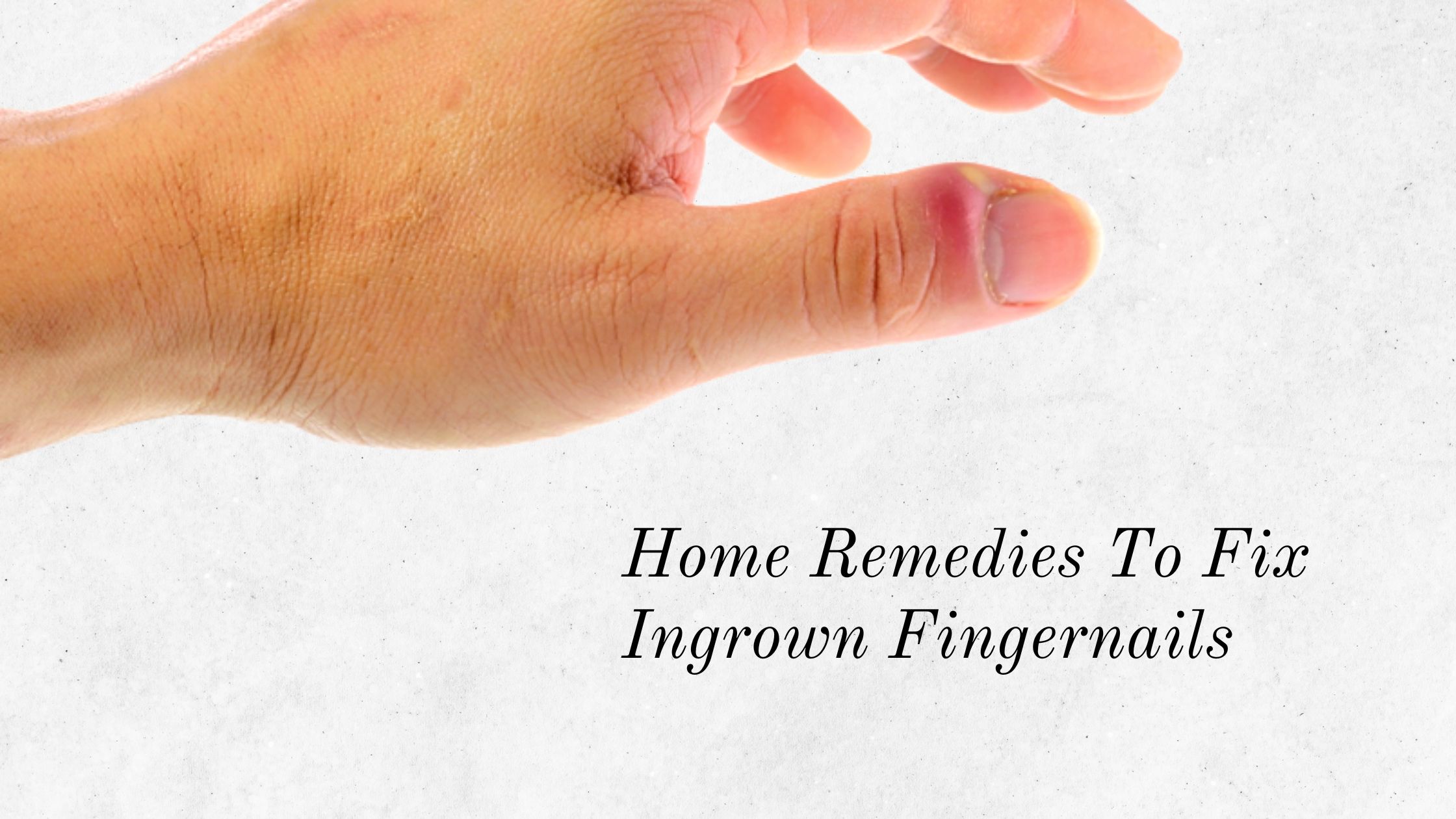
Ingrown nails can be a real bother as they can cause pain, swelling, infection, etc. It is not considered to be a serious condition but it can create persistent irritation and discomfort. Ingrown nails are mostly caused by nail-biting, improper cutting of nails, or due to a fungal infection.
Home Remedies To Fix Ingrown Fingernails – Simplest Ways!
Most people experience this condition in their toes but it can also happen in your fingernails. The skin and nails are made up of a protein called Keratin and the nails are a product of high amounts of Keratin-based cells pushing toward the finger area.
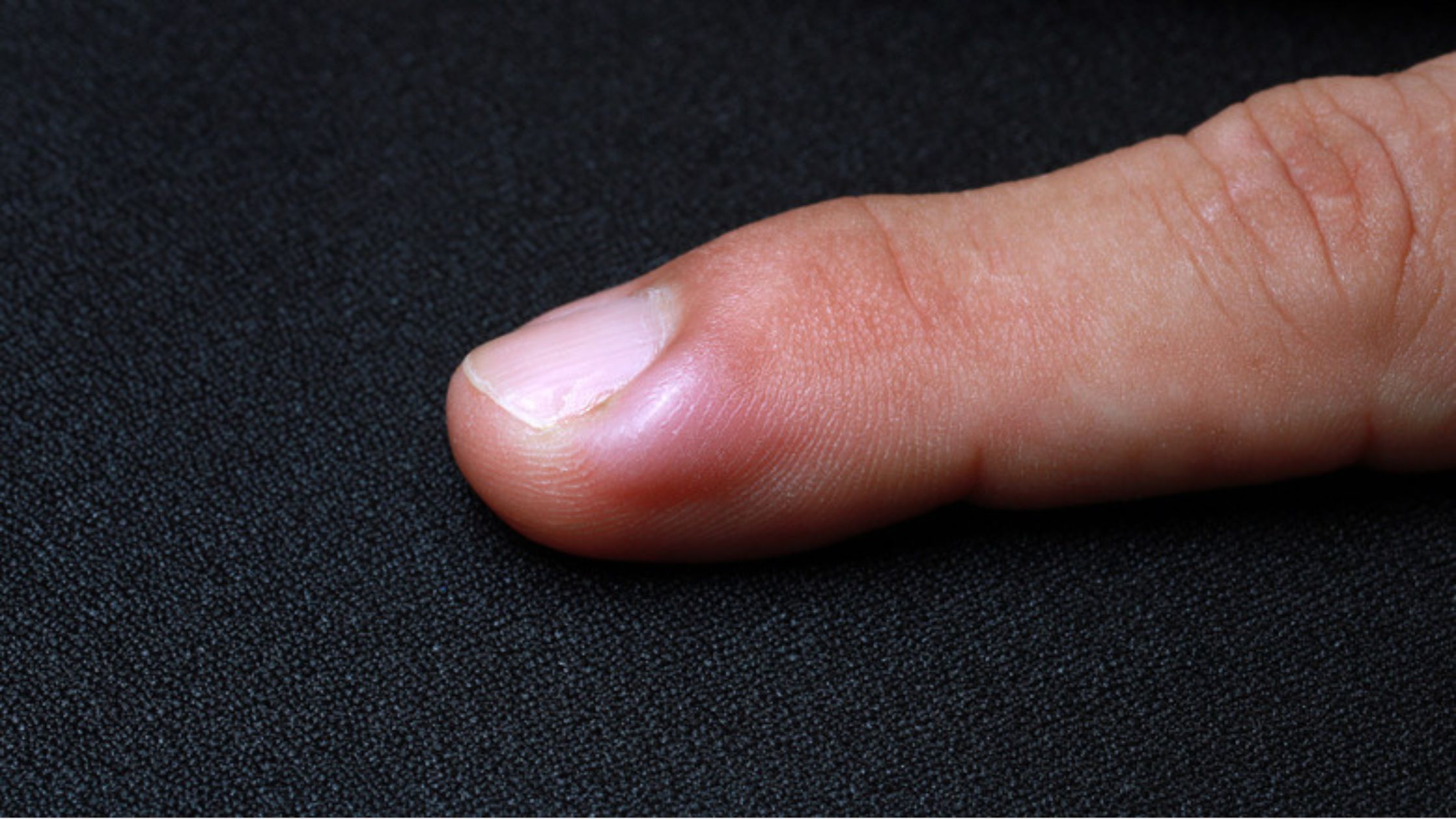
When the nails change their shape because of certain reasons then the connection between the nails and the ridges of your finger can get disconnected. This can make the nail grow into the corners of your fingernails which causes ingrown nails.
What Causes Ingrown Fingernails?
Ingrown fingernails can be caused by a number of reasons.
- Improper nail cutting
While cutting the nails, we should always be careful to cut them in a proper and regular fashion. If the cutting is not proper, with spikes or irregular shapes, then it can lead to an ingrown fingernail.
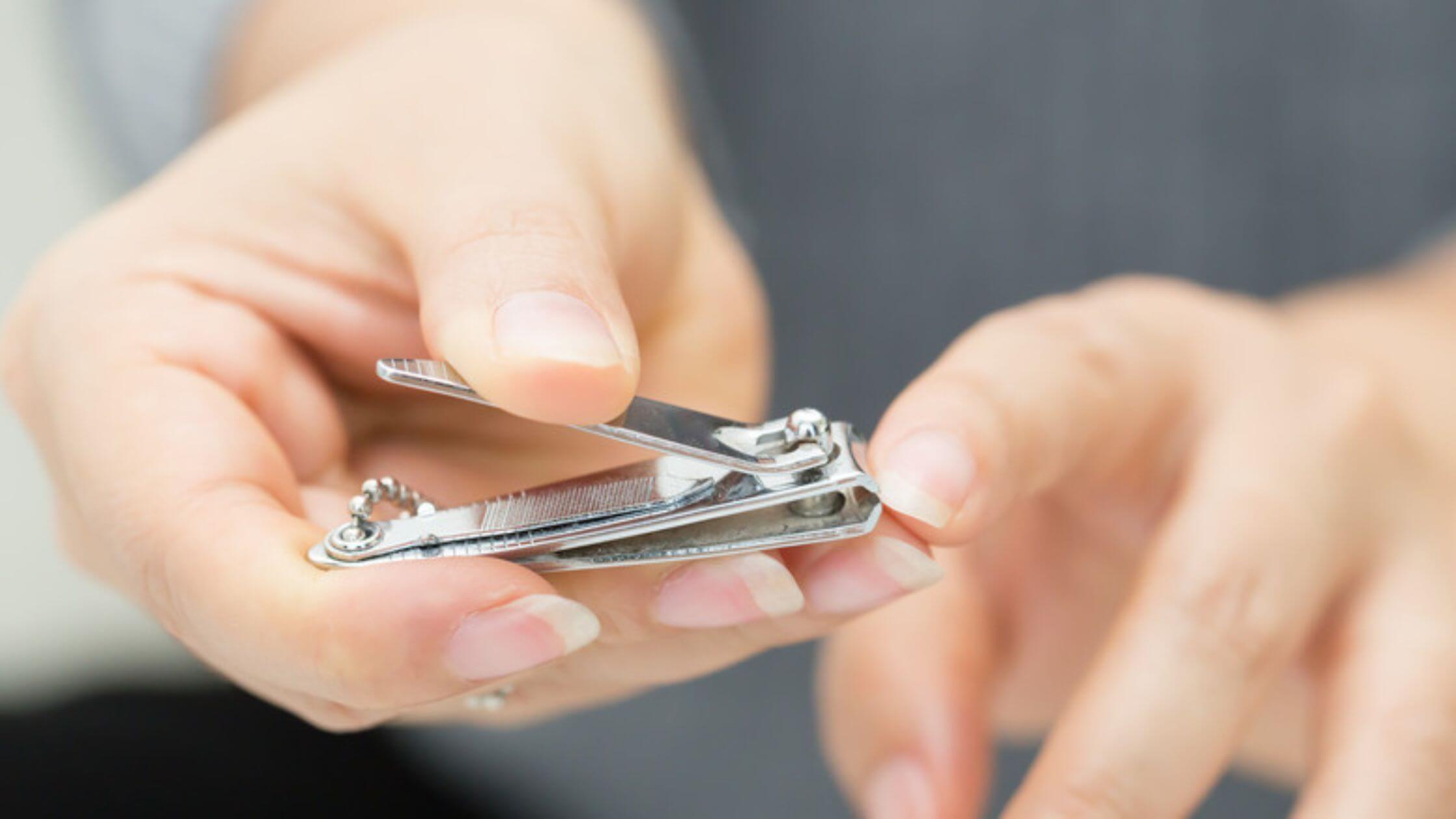
Kids and older people might need help with their nail cutting; without assistance, they can injure themselves.
- Fungal Infection
A fungus that grows beneath the fingernail can cause the ingrown fingernail issue as the nail gets infected by the fungal activity.
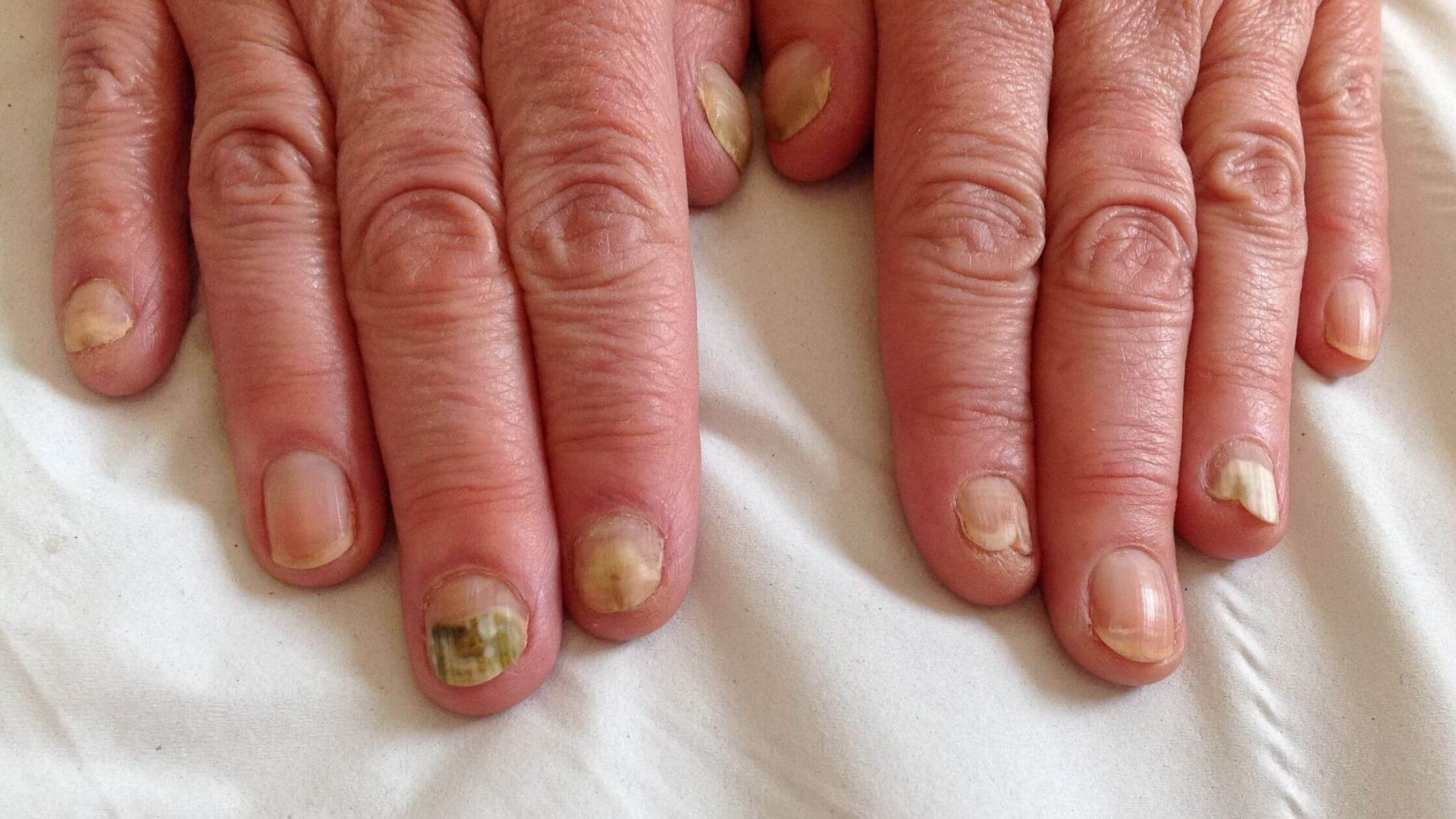
This fungus called candida can get onto the nails from outside and in the case of toes, it can get infected from wearing shoes that are not cleaned properly or another person’s shoes who might have had the infection, etc.
Typically an infection caused by a fungus can make the fingernail look brittle, thick, dull, yellowish, etc. They might require proper medical supervision.
- Fingernails that grow at an irregular pace
Some people’s fingernails can grow at a faster rate than others or it can be slower. This can lead to ingrown fingernails as the nails would grow into the skin without any warnings and at a faster rate.
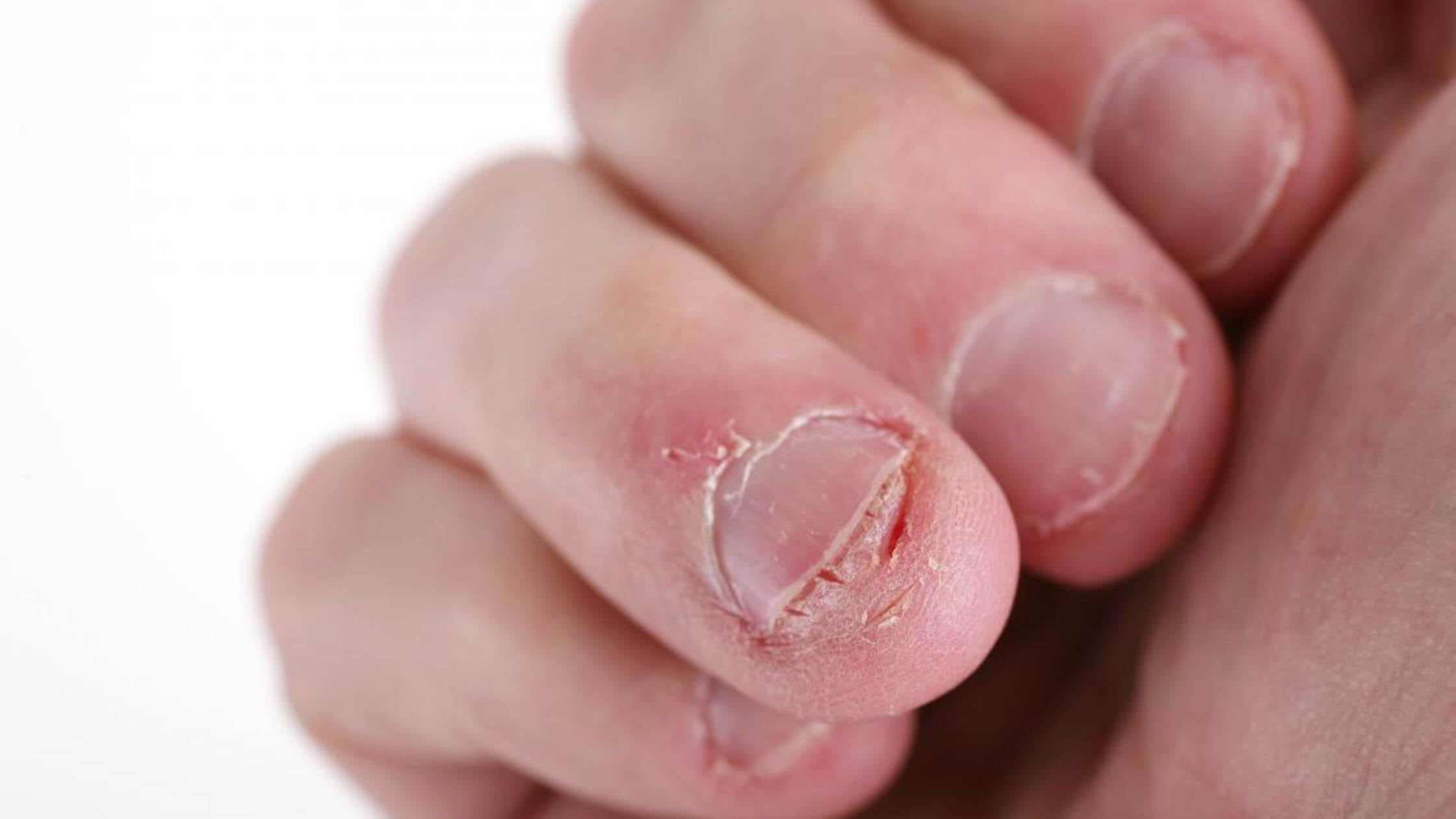
In slower-growing fingernails too, the person wouldn’t notice the nail lodging itself inside the skin as it takes a longer time.
- Bacterial infection
Like how a fungal infection can cause ingrown fingernails, a bacterial infection caused by Staphylococcus aureus can also cause the same.
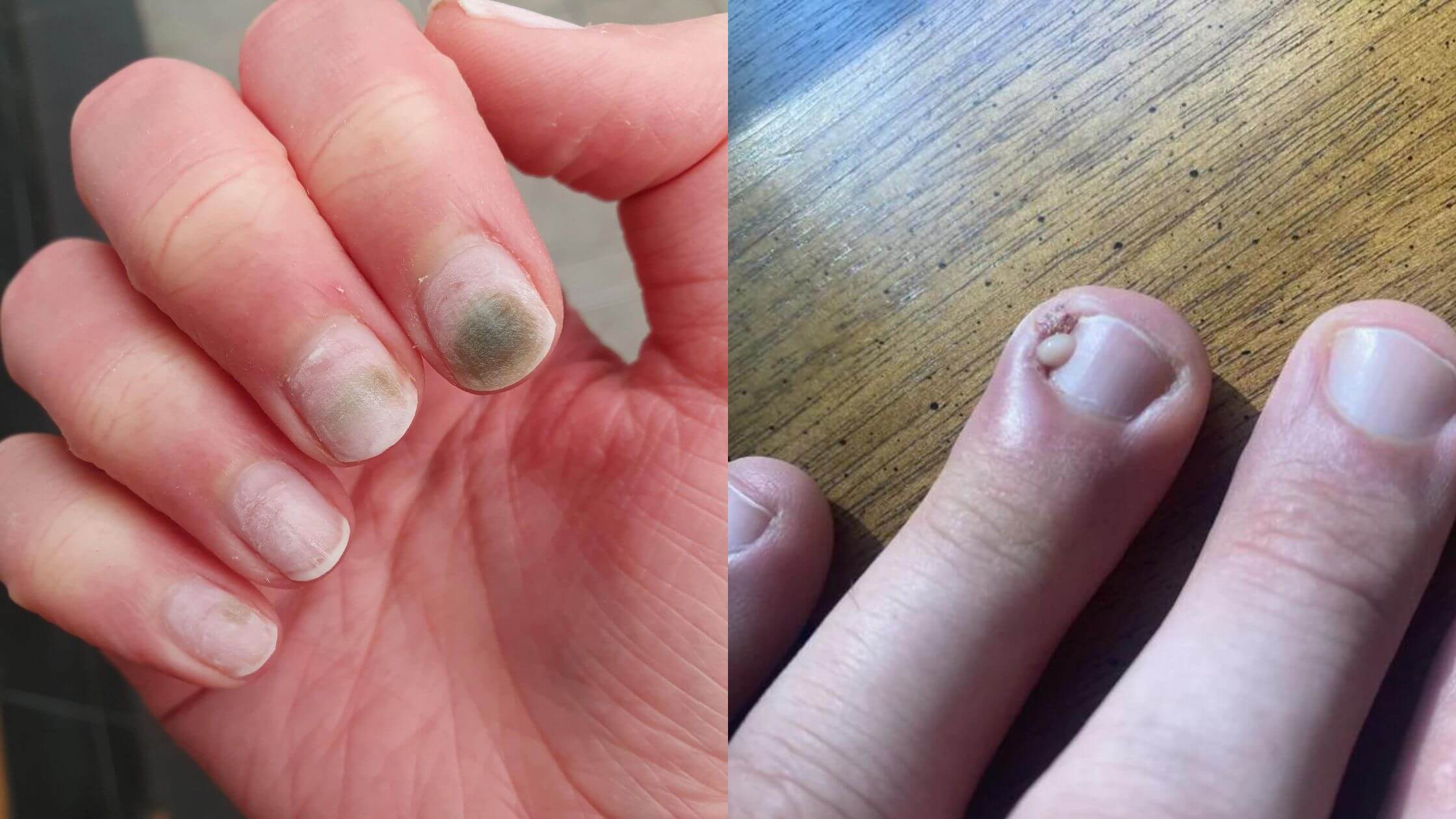
If you have a small cut near the ridges of your nails and if that cut is exposed to bacteria, then there is a high chance that the site would become an infection site.
A bacterial infection would often require the diagnosis of a healthcare professional.
- Injury of the fingernail
Fingernail injury is fairly common and can happen to anyone at any time.
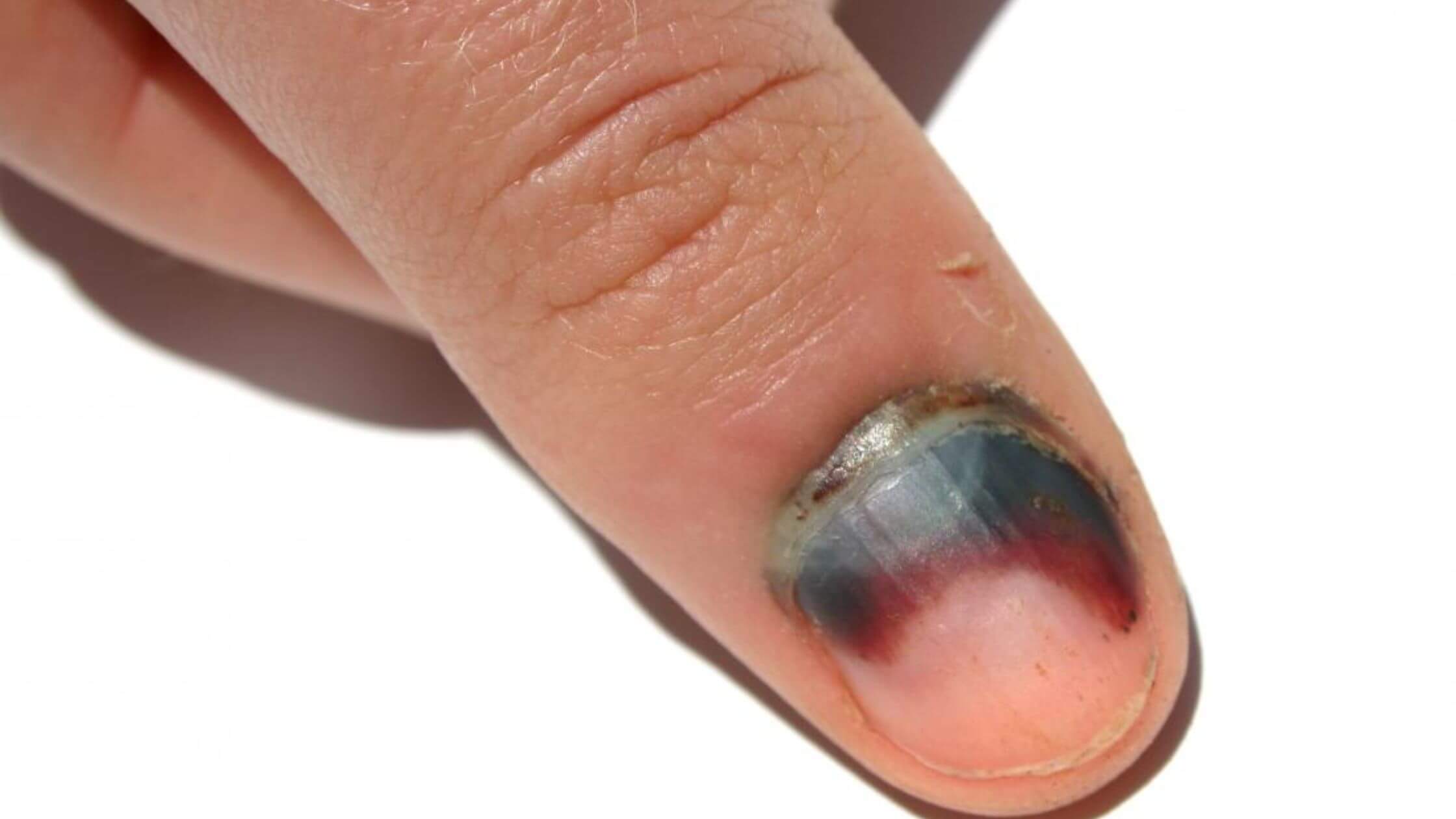
If the fingernail is damaged in the injury then there is high chance that the new nail that comes out of the injured part might not grow in an aligned manner like the other nails.
This misalignment can cause ingrown fingernails. Mostly, people who work in factories or are in jobs that require physical labor are prone to such injuries.
- The habit of nail-biting
Most of us know about the habit of nail biting. People do this simply as a habit or while they are stressed or anxious about things.
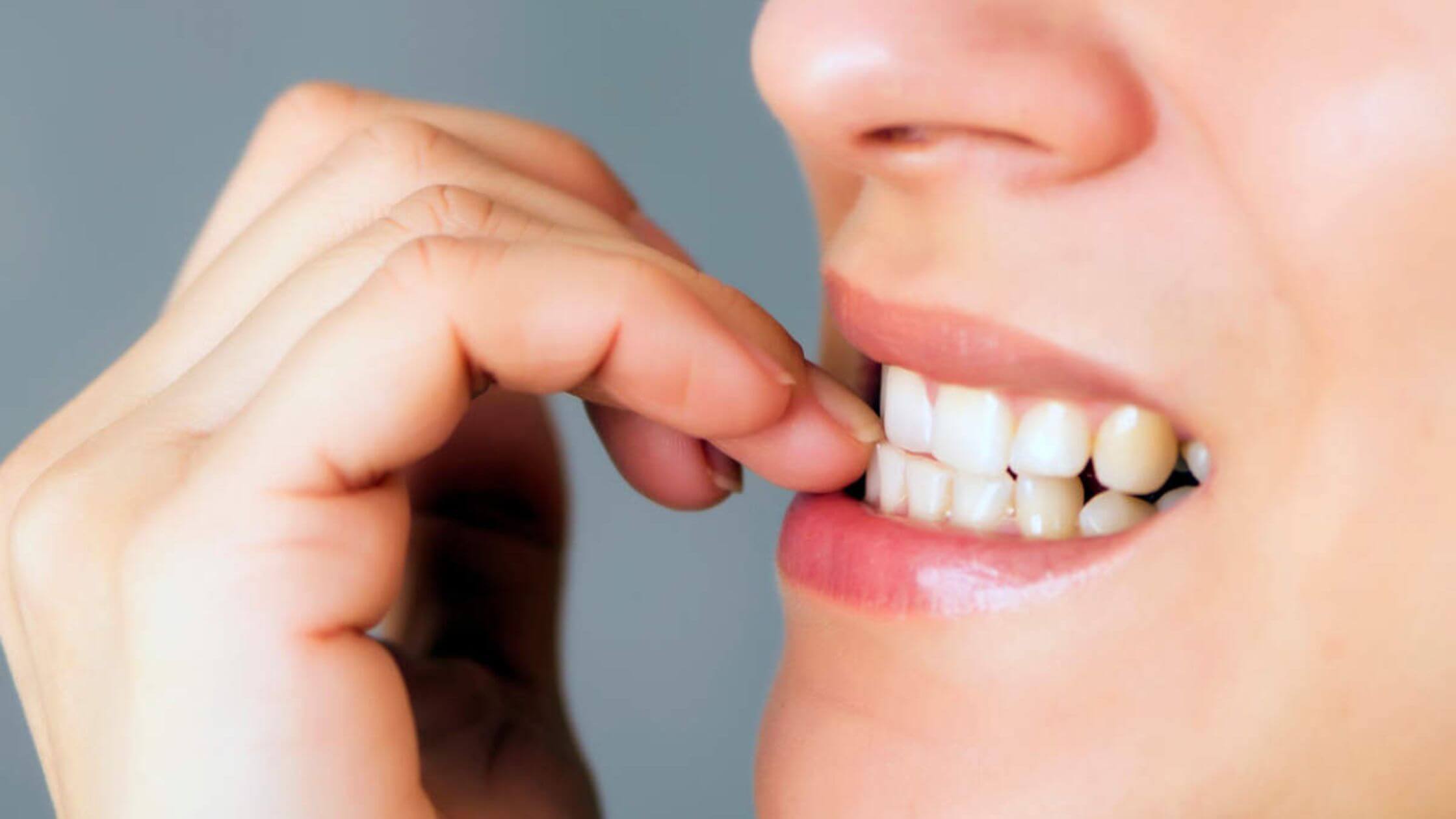
This habit can be one of the reasons for ingrown fingernails as the nails can become deformed by continuous nail biting.
It can grow in different shapes and this can cause it to grow sideways into the skin. Kids and adults have this habit and it should be reduced as it is considered one of the unacceptable behaviors in a public space.
Symptoms: How Do You Know If You Have An Ingrown Fingernail?
The symptoms of an ingrown fingernail are very evident as it is a very painful condition. It will be hard to do even simple daily tasks if the infection worsens.
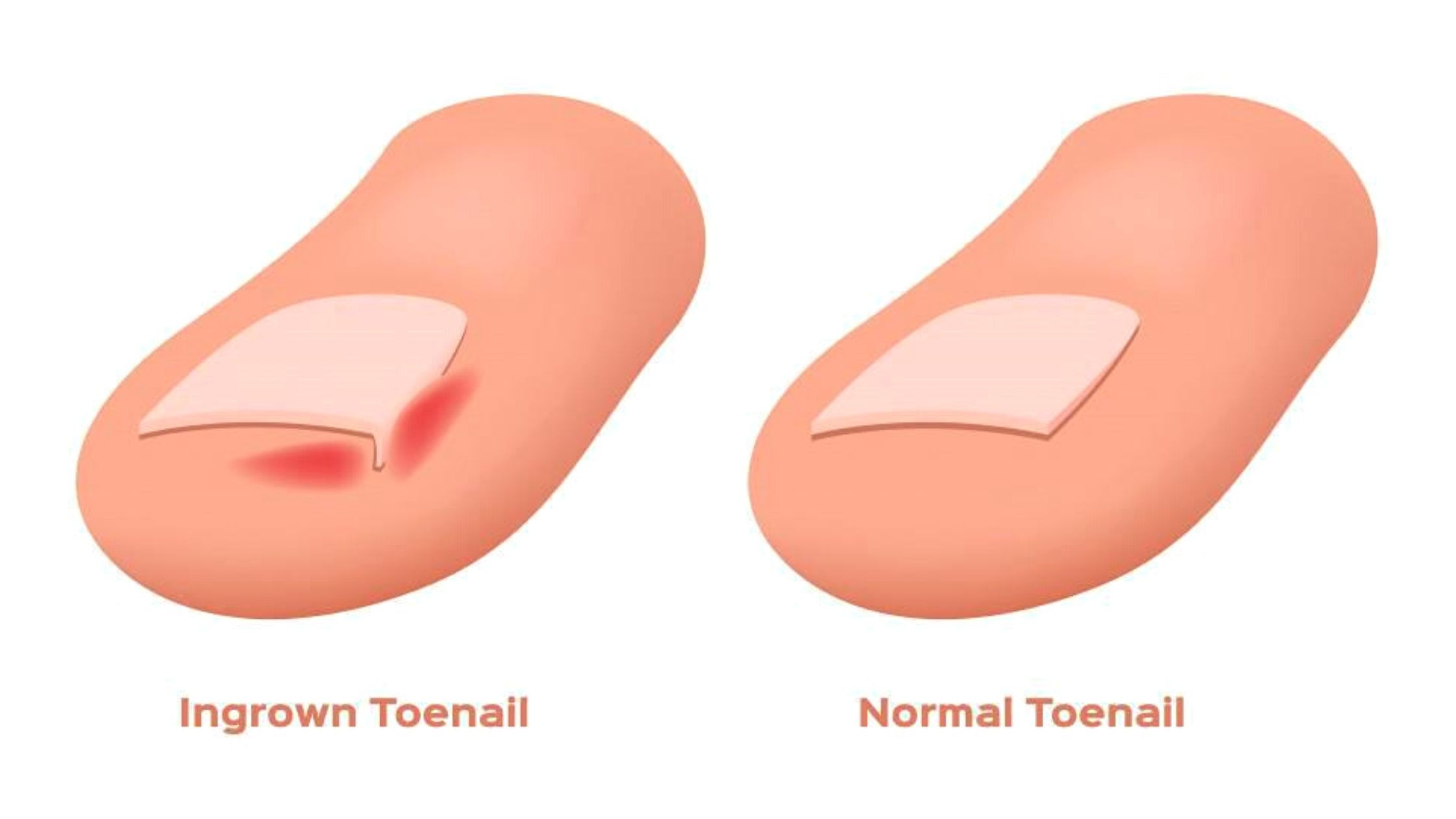
Let’s look at some of the common symptoms of ingrown fingernails.
- Swelling of the fingers
Ingrown fingernails can cause swelling which can be mild or severe according to the intensity of the infection.
This swelling will last until the infection is resolved and the ingrown nail is removed. It will be very painful if the swelling is disturbed.
- Tenderness
Ingrown fingernails can cause tenderness and pain around the area of infection.
This is due to the presence of an uneven or irregular growth around the ridges of the fingernails. This will naturally heal once the infection is dealt with.
- Infection
One of the main symptoms of ingrown fingernails is becoming infected. The reasons for infection can be different as it can be caused by bacteria, fungi, or an injury.
If the infection is not treated initially then it can the infection site will start producing pus. This area can swell up and become an abscess filled with pus.
What Home Remedy Is Good For Ingrown Nails?
Home remedies for ingrown fingernails that you can try:
- Soak the finger in warm water
Dip your infected finger in warm water for 10 to 20 minutes every day till the symptoms subside. Also, remember to dry the fingernail after soaking.
- Use antibacterial or antifungal ointments
If the ingrown fingernail is caused by fungi or bacteria, then get an antifungal or antibacterial ointment and apply it gently on the fingernail and its surroundings. These are basic treatments for fungal and bacterial infections.
If the symptoms persist then do consult a healthcare professional at the earliest.
- Cover with sterile cloth or bandage
Use a sterile cloth or bandage to cover the area of the infection so that it doesn’t get exposed to dirt or factors that can increase the infection.
Do not wet your infected fingernail while washing your hands or eating when you have the bandage on.
Also, remember to untie the bandage at regular intervals so that the fingernail and skin around it get some air passage.
- Hydrogen Peroxide
Hydrogen Peroxide is known to be an effective disinfectant. Buy hydrogen peroxide (35% food grade) and dilute two tablespoons of it in half a bucket of water.
Soak your infected fingernail in the solution for 10 to 20 minutes and then dry your nails completely.
- Other alternative solutions
There seems to be a list of herbal oils that are shown to be effective against fungal infection of fingernails.
Oregano oil, Australian tea tree oil, ozonized sunflower, and olive oil are shown to have some antifungal properties that may help with fingernail infections caused by fungi.
Applying vinegar, Listerine, or grapefruit seed extract is also known to show benefits. But these alternatives don’t have any scientific basis.
These are some of the home remedies that you can follow. However, if the symptoms still persist or get worse then visit a physician or a healthcare expert at the earliest.
They might recommend a minor surgery where they would cut off the extra nail that is causing the problem. They might also drain the abscess if it has become infected and prescribe a course of antibiotics for the wound to heal.
An ingrown fingernail is a minor issue and can be treated easily but if it is not given proper care then sometimes it may develop into bigger issues like felons.
A felon is an infection that grows deeper into the flesh and gradually infects the bone underneath. The condition is called osteomyelitis.
Usually, people who are immune compromised or diabetic individuals are at risk of this.
So it is advisable that this group of people consults a physician if the symptoms don’t go away in three to four days.
How Can You Prevent Ingrown Fingernails?
As it is said in the proverb, prevention is better than cure, it is always better to take the necessary measures to prevent an ingrown fingernail infection.
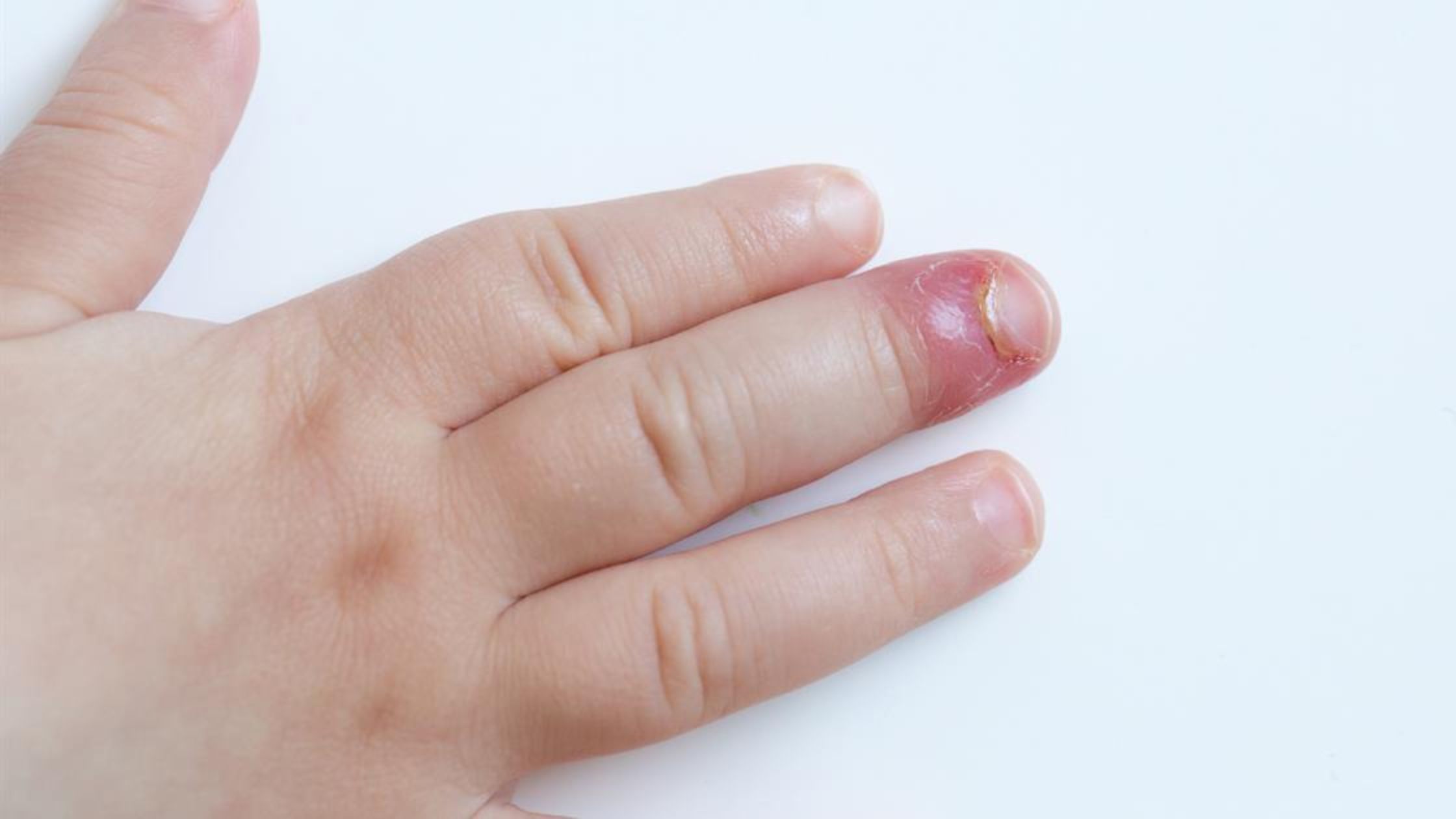
Some of the preventive measures are listed below.
- Always keep your finger and fingernails clean and neat.
- Cut your fingernails in a uniform regular manner without causing cuts or injuries.
- Try to cut down the habit of nail biting.
- Do not expose your fingernails to harmful chemicals or polluting solutions.
- Wash your hands often and especially if you have touched another infected fingernail.
- Avoid using other people’s gloves, nail cutters, etc.
- Make sure that the tools used on your fingernails in a beauty salon are properly sanitized.
Conclusion
Any kind of infection will put your body in distress. Ingrown fingernails are something that can give you a very painful time and can interfere with your daily activities.
Even though it is considered a normal and non-fatal condition, it is better to be avoided. Timely precautions and care can prevent the infections from spreading and causing further complications.
People who are diabetic and have immunity-compromising conditions should be extra careful as these small infections can also become a big headache if not attended properly.
Visit your nearest medical clinic or physician if you think the infection is becoming worse and if you don’t have an improvement in your condition within three to four days of home treatment.
A doctor can diagnose a fungal infection of the fingernail by collecting a small sample from under your nail. There are several conditions that can lead to fungal infections like eczema, psoriasis, lichen, etc.
So it’s always better to get the diagnosis done by a certified healthcare expert.
